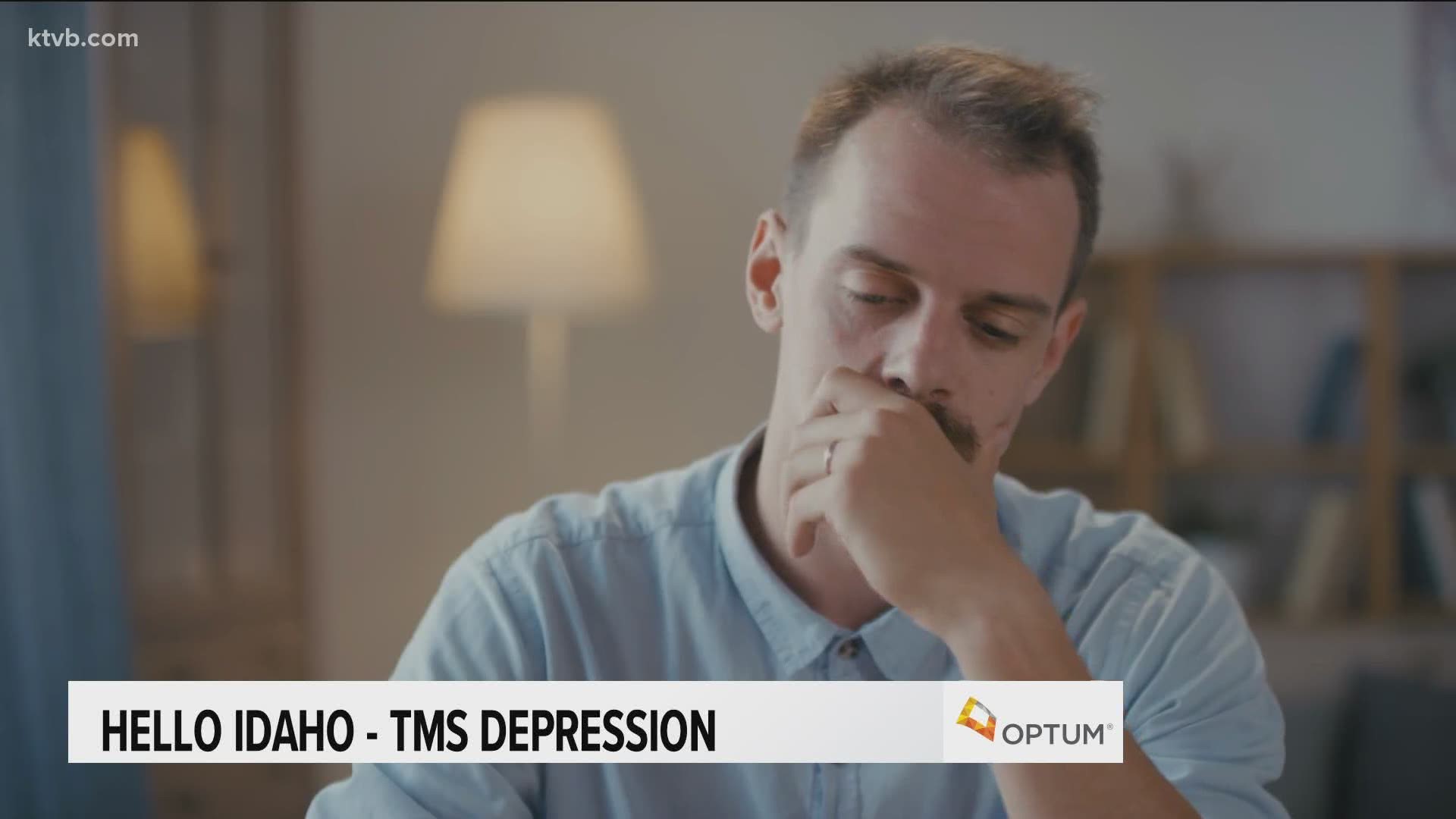BOISE, Idaho — A Meridian psychiatrist has begun experimenting with an alternative treatment for depression. The treatment is essentially an "exercise" the brain does until it is healthy again.
Conventional treatment for depression is usually one or more types of medication but can vary greatly from person to person. If necessary, counseling and therapy can also be very effective in treating depression.
The COVID-19 pandemic caused depression and anxiety to worsen for some people. While medication can be an effective treatment for depression, Dr. David Kent of Cottonwood Creek Behavioral Hospital has begun using a treatment that is considered to be an alternative to medication.
The treatment is called transcranial magnetic stimulation (TMS) and involves the use of magnetics, according to Kent.
"It's FDA approved to treat a specific location in the brain. It's kind of like going into the gym and exercising that part of the brain until it gets healthy again," he said. "And this is heavily researched so it's not something that we're just guessing. We have a lot of information on this."
Kent said the success rate of TMS is high when considering patients he has treated have not been successful with medication and psychotherapy.
"I get all the hardest cases [but] in that group I get two out of three people into complete remission with TMS," he said. "Another 20% get at least partial benefit. So that's a really high success record for that population."
TMS treatment is approved for patients 18 years of age and older. Kent said he has treated 18-year-old patients and 80-year-old patients, and both have responded well to the treatment.
"There are some places in the country that are trying to treat adolescents. I think they're having good success but it's not fully FDA approved," he explained. "But that's the problem with adolescents anyways, they are not FDA approved for the meds either."
Kent feels TMS treatment is actually safer than most medications used to treat depression. While he understands the use of electromagnetic energy to treat depression can seem strange, he wants to ensure everyone that it is a safe, effective treatment method.
"When [patients] come in to see me, I give them all the facts and information. At the end of that, they're usually super excited and they do really, really well with the treatment," Kent said. "I have a very low failure rate, so I can usually give a lot of people hope. That's the key ingredient here is hope."
Watch more 'Hello Idaho':
Watch our latest conversations about mental health in our YouTube playlist:

